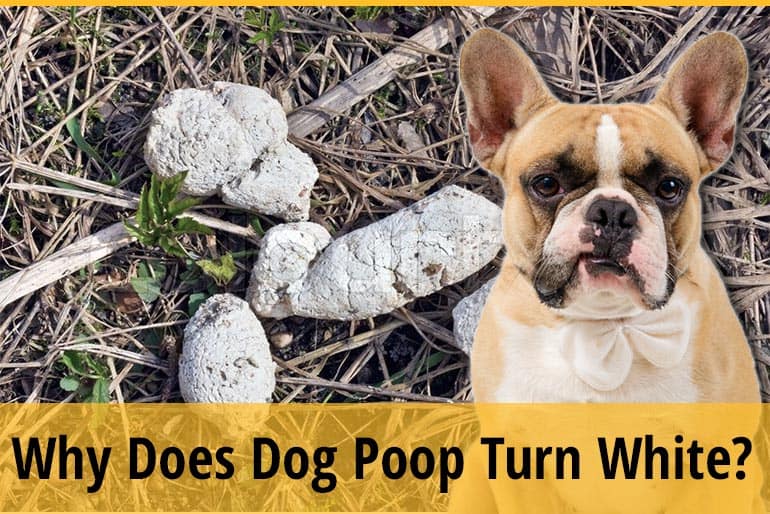My Dog’s Poop White? When you notice that your dog’s stool is brighter, and whiter than a healthy brown, this is cause for concern.
Table of Contents
Interestingly, the white dog poop breaks down over time and dries out, so you may not see your dog’s white poop right away, but after hours.
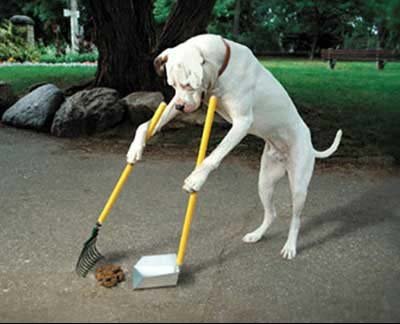
Fortunately, the white poop usually arises from something that can be easily corrected.
Most dogs are private poopers. They prefer to live under the deck or go behind the bush to do their business.
Also Read: 4 Tips for Dog Grooming Equipment maintenance and success
And I don’t lie – dogs find it very strange to stand on them when we wash them and pick it up or pick them up from behind.
This is a good thing because Poop can say a lot about what’s going on inside our dogs. If you see a white dog poo instead of the usual dog brown — something is wrong.
Why your dog’s poop color is important?
If the eyes are a window to the soul, the poop is a window to the body (yes, we said). Stool changes are based on dog stomach and intestinal health.
It also varies depending on what happens with the systemic disease, such as dog liver, pancreas, and infections.
Changes in the poop include texture (from solid to loose liquid), odor, frequency of frequency, and contents (mucus, blood, worms).
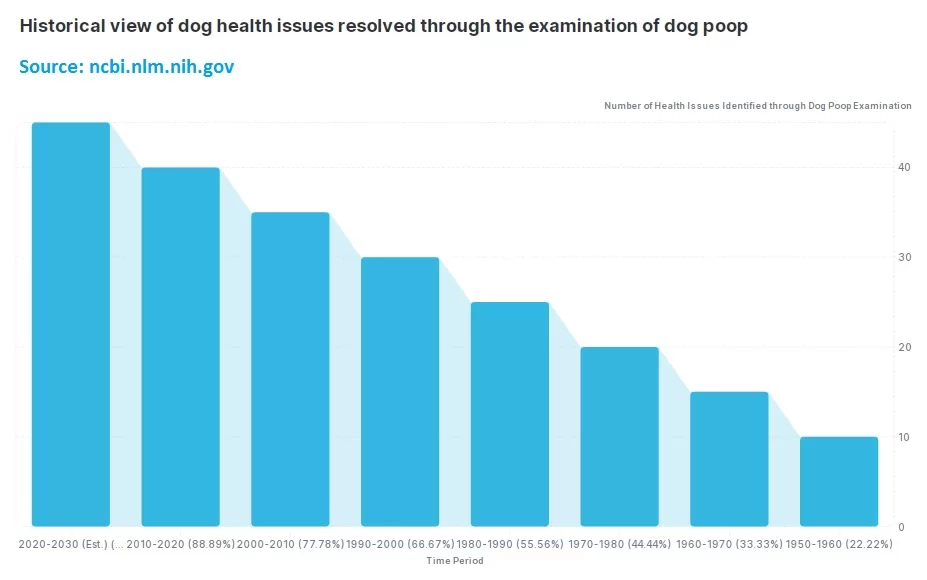
Another important change to look for in your dog’s poop is a change or contrast in color.
For example, red stool indicates the presence of undigested blood, i.e. it comes from the colon.
Dark, almost black stools usually contain digested blood from a stomach or small intestinal ulcer.
Green dog poop may indicate that the dog is eating grass or may be due to liver dysfunction.
Your dog poop should usually be a shade of brown. It has a lot to do with the food your dog eats and how often he poops.
Why My Dog’s Poop White?
White dog poo indicates a problem. There are many reasons why dog poop may be white, but white poop is not always common.
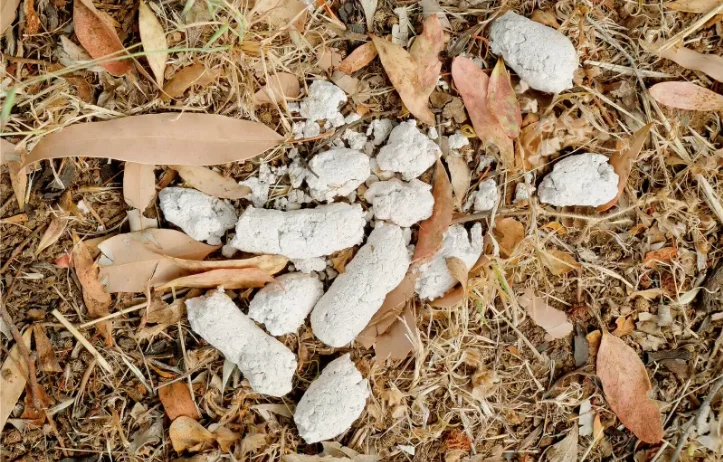
A white poop in dogs indicates a food problem or imbalance, an action drug side effect, internal illnesses, or a parasitic infection.
Below are some common reasons why a dog’s poop may be white
Here’s a chart outlining various potential causes of white dog poop:
| Cause | Description |
|---|---|
| Diet | Excessive calcium or bone consumption in the diet. |
| Dehydration | Insufficient water intake leading to harder, paler stools. |
| Fungal Growth (Mold) | Leftover feces exposed to humid conditions develop mold. |
| Liver Problems | Liver issues can affect bile production and stool color. |
| Digestive Disorders | Gastrointestinal problems can lead to pale stool color. |
| Medications or Supplements | Certain medications or supplements can affect stool color. |
| Parasitic Infections | Certain parasites may cause changes in stool color. |
| Pancreatic Insufficiency | Can impact digestion and result in abnormal stool color. |
Additionally, we have given a detailed view of the causes and solutions
High calcium diet
First, check what you are feeding your dog. Some foods, especially raw foods, are high in calcium, which can cause white or very light stools.
Giving raw food to dogs puts them at risk for bacterial contamination and they may have a nutritional imbalance. Raw foods high in calcium can cause constipation, hard stools, and white stools.
If you think this is the source of your dog’s rough and white poop, switch to commercially designed cooked dog food or consult a veterinary nutritionist for assistance in reforming your dog’s diet.
Side effects of medications
Your veterinarian will prescribe certain medications or treatments such as liquid barium to temporarily whiten the mold.
It returns to its normal color after the barium has passed through your dog’s system. If your dog’s boop does not return to normal after dosing your dog with liquid barium, consult your veterinarian.
Your dog ate the white object
The next thing to assess is whether the poop is white or something white in it. The white sock-eating dog can pull the sock out, in which case there is a simple brown poop around the sock.
Dogs that eat non-food items such as toys, clothes, and stones are more likely to develop dangerous digestive problems if they are trapped. The only way to remove the trapped object is through surgery.
Tapeworms
If your dog has white spots or streaks on the poop, they may be tapeworms. Tapeworm eggs are visible to the naked eye and are often described as short-grain rice grains.
You are unlikely to see adult worms such as hookworms or roundworms in the feces unless your dog has a severe infestation.
If you notice white spots or streaks on your dog’s tail, call your veterinarian immediately for a diver, and don’t forget about the importance of contaminating your yard as well!
Digestive problems
The mucus in the dog poop is white or yellow. A little mucus may be normal but too much means your dog has trouble digesting something.
Something could be non-food items like table scraps or a tennis ball. When the mucus is red, i.e. in blood and blood poop always need a trip to the vet.
Internal illness
Fortunately, internal illness is minimal in all the things that can cause your dog’s poop to be white. However, for those with a white or gray poop, the problem can be serious.
A white or gray poop means that digestion is not working properly (maldification).
The liver produces bile, which is a greenish-pigmented substance. If the liver does not produce bile, or the gallbladder does not pipe into the intestines to mix with food, the result is a white or gray poop.
Since bile is so important in proper digestion, biliary insufficiency is a serious problem that should be investigated immediately by your veterinarian.
Similarly, a dysfunctional pancreas can cause a light gray poop in dogs. The pancreas is responsible for producing many important digestive enzymes, including insulin. Problems such as liver, gallbladder or pancreas can be fatal if left untreated.
Dog poop turns white when it dries
When your dog is poop, it looks normal and healthy, but over time, it turns white. This can be caused by normal pigment decomposing in the sun or mold growth in high-humidity environments.
If you notice any of those things, it does not mean that there is anything wrong with your dog.
However, if you notice dog poop turning white in your yard, it means that you need to clean your dog poop more regularly.
Dog feces left in the dirt can contaminate water sources, develop your dog’s intestinal worms, promote coprophagy (eating poop), and be gross to step on accidentally.
What to do if your dog poop is white?
If you notice that your dog’s poop is white, look for some of the above symptoms. Can you see visible pieces of white matter or worm sections? For dogs with white spots or filaments in the poop, a strong diver is required.
For other items, monitor your dog. If the next poop is completely normal and your dog eats drinks and poops normally, there is nothing to worry about.
But, a veterinarian should see a dog that is known to eat inedible items.
If diet is the cause of white mold, change in diet is the solution. Over time, a diet high in calcium can lead to constipation or constipation (painful and difficult bowel movements).
Dog food is slow, over a period of a week or two, so that you do not cause intestinal upset and diarrhea.
If your dog has a gray or white poop and you can not easily identify the cause, you should schedule an emergency appointment with your veterinarian.
Your veterinarian will do a full physical examination, assess your dog’s stool, and do a blood test to find the source of the problem.
Treatment depends on the cause but may require multiple veterinary visits, advanced tests, medications, and even surgery.
Your veterinarian may also refer you to a veterinarian who specializes in internal medicine.
So, keep bringing those poop bags on the walk and monitor your dog’s poop. You can catch change before it becomes a problem so you can keep your dog healthy and by your side.
Healthy Dog Poop
After describing the white or gray poop, you also need to know what a healthy dog poop looks like, so you know what to expect.
- Color – Healthy Dog Poop Rich, Chocolate Brown. If you feed your dog food with any extra colors, these will also appear on his stools.
- Shape – Most dog poop should look like logs, cut into long pieces. If your dog is running poop, he may have diarrhea. If it is small capsules, he is dehydrated.
- Smell – Don’t Deny It: Dog Poop Stink! But, it shouldn’t smell too bad or smell anything (isn’t that good?). The smell of the poop means your dog’s digestive system is doing its job.
- Stability – It is very easy to pick up your puppy, but it should be a little soft (like flour) in your hand.
- Overall – Your dog’s poops should be commensurate with how much he eats. Too much poop means he has too much fiber in his diet, but enough poop he may be a sign of constipation.
- Contents – Your dog’s poop should be with what he last ate. If you notice mucus, parasites or any abnormalities in your dog poop contents, talk to your vet right away. This is a sign of an underlying health problem.
Different colors of dog poop
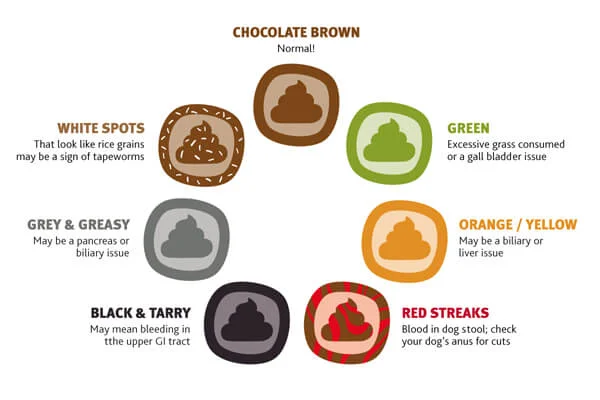
In addition to the white dog poop, many other colors of dog poop may or may not be healthy. Some:
- Green poop, which is caused by your dog eating too much grass or having diarrhea.
- Black poop, or asphalt-like poop, maybe a sign of a gastrointestinal or peptic ulcer.
- A red or bloody poop, which may be a sign of bleeding in your dog’s gastrointestinal tract.
- Yellow dog poop, when it contains yellow mucus, usually indicates food intolerance. Examine the ingredients in your dog’s diet to make sure he is not intolerant.
- The white spots on your dog’s poop can be worms. Most worms can be treated, consult your vet for more detailed care.
FAQs
What’s the process for eliminating white dog shit?
White dog feces typically occurs due to the presence of calcium or bone fragments in the stool. It’s essential to ensure your dog’s diet is well-balanced and not overly rich in calcium. Additionally, dehydration can contribute to harder, whiter stools, so it’s crucial to provide your dog with plenty of fresh water. If this issue persists, consult your veterinarian for a more thorough evaluation.
What causes dog excrement to become white and fuzzy?
White and fuzzy dog poop is often a result of fungal growth on the feces, commonly known as mold. This typically happens when the stool is left out in a humid environment. It’s not a cause for major concern, but it’s best to prevent your dog from eating it and promptly clean up any feces to avoid mold growth.
Why does my dog’s stool appear light in hue?
A pale color in your dog’s poop can be indicative of dietary issues, liver problems, or a lack of bile production. It’s crucial to monitor your dog’s diet and consult your vet if you notice consistently pale stools to rule out any underlying health concerns.
What shade indicates unhealthy dog poop?
Unhealthy dog poop can come in various colors, including yellow, green, or black, and can indicate different issues. White or pale stools may signal liver or digestive problems, while dark, tarry stools could indicate bleeding in the upper gastrointestinal tract.
Is white dog poop dangerous?
White dog poop can have various meanings, depending on the context. It can result from dietary factors, mold growth, or underlying health issues. To determine the specific cause and significance, it’s best to consider your dog’s overall health and consult with a veterinarian if you have concerns about their stool color. Regular monitoring of your dog’s feces is crucial for maintaining their well-being.
Wrapping Up
In conclusion, the color and consistency of a dog’s stool can provide valuable insights into their health. White dog poop can be attributed to a range of factors, including dietary choices, dehydration, mold growth, liver problems, digestive disorders, medications, supplements, and parasitic infections. Understanding the potential causes of white stool in dogs is essential for pet owners to monitor their furry companions’ well-being and take appropriate action when necessary.
Regular observation of your dog’s stool and prompt veterinary consultation for persistent or worrisome changes are crucial steps in ensuring your pet’s health and happiness. Remember that a healthy diet, adequate hydration, and regular veterinary check-ups are key to maintaining your dog’s digestive health and preventing issues related to stool color.

